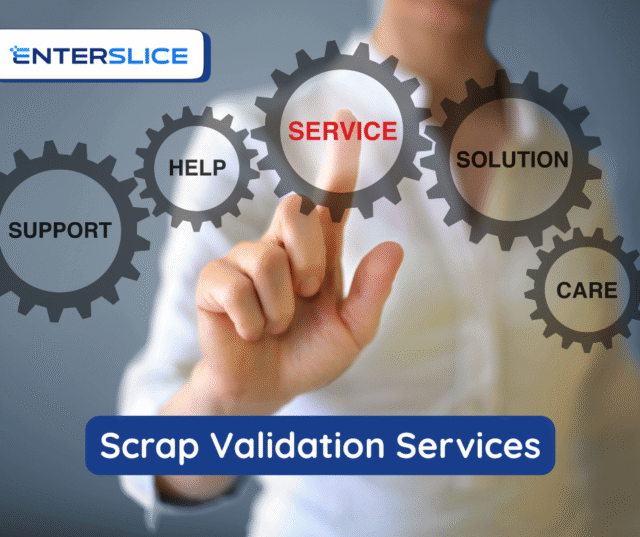In industries like manufacturing, automotive, and metal recycling, managing scrap is a crucial part of operational efficiency and compliance. Whether you’re handling discarded materials, defective items, or recyclable waste, validating the scrap before disposal or resale is essential. That’s where professional scrap validation services come into play.
What Is Scrap Validation?
Scrap validation refers to the process of assessing, categorizing, and verifying the scrap materials generated in industrial or commercial processes. The goal is to ensure that the declared scrap aligns with the actual material being discarded or reused. This verification is vital not only for internal audits but also for meeting regulatory requirements, minimizing losses, and avoiding fraudulent practices.
Many businesses overlook the importance of accurate scrap management, which often leads to inventory mismatches, compliance issues, or financial leakage. Scrap validation services provide an independent and expert assessment of the scrap, helping businesses identify discrepancies and optimize waste handling.
Why Businesses Need Scrap Validation
Today, regulatory scrutiny around environmental and financial compliance is at an all-time high. Companies that fail to validate their scrap correctly could face penalties or reputational risks. Below are some critical reasons why scrap validation is necessary:
1. Prevent Revenue Leakage
In the absence of validation, valuable scrap may be misclassified or underreported, leading to losses. Proper verification ensures every item is accounted for, and businesses receive the right value from recyclers or vendors.
2. Maintain Regulatory Compliance
Environmental and tax regulations often require accurate reporting of disposed materials. Scrap validation services help businesses stay compliant with local laws and industry standards.
3. Improve Inventory Accuracy
Scrap affects your bottom line and your inventory records. Unverified or misreported scrap can lead to confusion in stock levels and misaligned balance sheets. A proper validation process eliminates such gaps.
4. Detect Fraud or Misuse
Scrap is one of the easiest areas for internal theft or misuse. Independent validation helps uncover unauthorized disposal or misreporting of materials that could otherwise go unnoticed.
Industries That Benefit from Scrap Validation Services
While almost every manufacturing-based business can benefit from scrap validation, certain sectors see more tangible value. These include:
- Automotive and auto parts manufacturing
- Electronics and e-waste recycling
- Metal and alloy production
- FMCG and packaging units
- Textile and garment manufacturing
Each of these sectors deals with high-volume, high-value scrap. Without a structured validation mechanism, tracking the flow of scrap becomes a complex and error-prone task.
The Process of Scrap Validation
Engaging a professional scrap validation service typically involves the following steps:
- Data Collection: Gathering information on types of scrap generated, volumes, and current disposal methods.
- On-Site Inspection: Physically verifying the scrap against recorded data.
- Sampling and Testing: In some cases, technical tests are performed to confirm material type or condition.
- Report Generation: Providing a detailed report highlighting any inconsistencies or validation results.
- Advisory and Recommendations: Suggesting process improvements or control measures for scrap handling.
This structured approach ensures objectivity and accuracy in handling scrap, offering tangible insights to improve operations.
How to Choose the Right Scrap Validation Partner
Choosing a trusted and experienced service provider is key. Here are some tips to make the right selection:
- Experience in your industry: Ensure the provider understands the material types and compliance norms relevant to your business.
- Transparent methodology: The validation process should be well-documented, with clear reporting formats.
- Compliance knowledge: The team should be aware of legal and regulatory requirements for scrap handling and disposal.
- Technological support: Providers using data analytics or digital tools can offer more accurate and faster results.
Final Thoughts
Scrap may seem like a by-product, but mishandling it can cost your business more than you think. Professional scrap validation services help safeguard your revenue, ensure compliance, and provide peace of mind. If you’re managing significant volumes of scrap, it’s time to get it validated by experts who understand the stakes.







